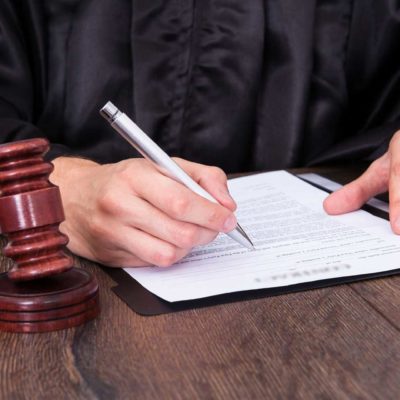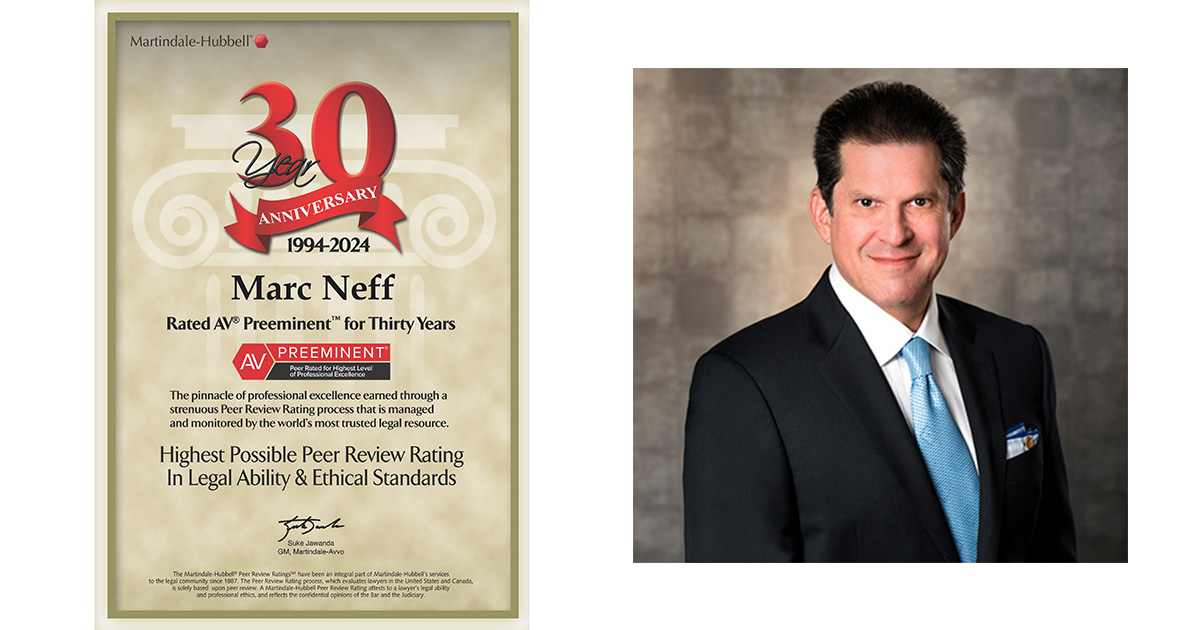We often receive similar criminal defense FAQ questions from clients: What is the difference between a Federal Court and a State Court? Is there a difference between DUI and DWI in Pennsylvania? This section provides answers to some frequently asked questions.
What is the difference between a Federal Court and a State Court?
In the United States, there exists a dual system of government which is created by the United States Constitution. This system provides sovereignty not only to the United States, but also to individual states. Therefore, not only is there a code of federal rules, laws, and regulations, but also codes for each individual state. Jurisdiction over criminal proceedings is determined by factors such as the type of crime, where it was committed, the victim or victims, etc. In some cases, federal law and state law can overlap. It is even possible to simultaneously have cases in both the state and federal court systems. There are also separate prisons dedicated to state and federal offenders respectively.
Jurisdictional issues in criminal cases are extremely complicated. Often, charges can overlap, contributing to excessive sentencing. Our office has over 30 years of experience defending clients in both the Pennsylvania and New Jersey State court systems, as well as defendants nationwide in the federal court system. An experienced criminal defense attorney can help you understand the state and federal charges against you and provide you with the best defenses available.
What is a Capital Crime?
Capital crimes, or capital offenses, are those crimes which are punishable by death. Generally, capital punishment is associated with first-degree homicide, however it can also apply to crimes of treason, espionage, other crimes against the United States, or as part of military justice. Capital punishment is a topic of much debate in the United States, as well as throughout the world. Each state has its own laws regarding capital punishment, separate from federal laws which apply to federal capital offenses. Capital punishment is also limited to those offenders over the age of 18, however can apply to a minor if charged, tried, and convicted as an adult. If you are charged with a capital offense, it is imperative that you speak with a criminal defense attorney immediately.
What is an “open-container” law?
Open-container laws are state enacted laws and can vary between different states. The federal government, in an effort to curb the high rate of motor vehicle accidents involving alcohol in the United States, developed the “Restoration Act” in 1998 to encourage states to adopt open-container laws. Although the laws are state enacted, states not adopting open-container laws will have federal funding redirected towards drunk-driving related safety programs. Accordingly, most states, including Pennsylvania and New Jersey, have adopted open-container laws.
Contrary to general belief, open-container laws apply to motor-vehicles; not public areas. The law prohibits both possession of any open alcoholic beverage container and consumption of any alcoholic beverage by driver and all passengers in a motor vehicle. The law covers any area of the vehicle readily accessible to the driver or any passenger in the vehicle, and applies to all vehicles on a public highway or in the right-of-way of a public highway, such as on the shoulder. Open-container laws give police primary enforcement, meaning they do not need probable cause of another violation prior to stopping the vehicle. The law does not apply to commercial vehicles such as limousines, buses, and taxi cabs.
Open-container laws are generally perceived to apply to drinking alcoholic beverages in public as well. Most states have separate laws pertaining to possessing and drinking open-alcohol in public areas; however the state “open-container” law is not applicable. Seven states, including Pennsylvania, do not have such a law, however almost all individual localities in Pennsylvania, such as Philadelphia, have enacted their own legislation prohibiting public consumption of alcohol. Only a few localities in the United States do not prohibit the consumption of alcohol in public, for example on the Las Vegas Strip and in the French Quarter of New Orleans.
A violation of the open-container law can have penalties similar to those associated with driving under the influence. A person facing these penalties should consult with a criminal defense attorney immediately.
What is “decriminalization” and how does it differ from “legalization”?
Decriminalization is the reduction or removal of criminal penalties associated with certain criminal acts. It is a response to a changing society and associated morals and beliefs. For example, the general consensus of society may be that the act is no longer harmful, should no longer be criminalized, or should not be a matter addressed by the justice system. Decriminalization does not make the act legal; rather it may replace jail-time with fines or regulate the act in other, less stringent ways.
Legalization, on the other hand, removes most or all legal regulation from a previously criminal act. Whereas decriminalized acts remain technically illegal, legalization changes the law to make the act legal.
Laws are constantly changing, both in statute and enforcement. An experienced criminal defense attorney follows these changes, and should be consulted immediately if you are arrested and/or charged with a crime.
What Constitutes Mortgage Fraud?
Mortgage Fraud is a term used to describe a broad variety of actions. Mortgage Fraud is considered a White-Collar Crime. The most common forms of Mortgage Fraud seen today are:
Property Flipping
Property is purchased falsely, appraised at a higher value, and then quickly sold. The practice of property flipping is made illegal because the appraisal information is fraudulent; the practice usually involves fraudulent appraisals, doctored loan documentation, inflating buyer income, and/or kickbacks to parties involved in the deal.
Silent Second
The buyer of property borrows money for the down-payment from the seller, which is not recorded, and therefore unknown to the primary lender. Therefore, the lender believes the buyer has invested their own money, when in fact it has been borrowed, and the lender is more willing to grant the requested loan.
Nominee Loans/ Straw Buyers
The borrower uses someone else’s name and credit history to obtain the loan.
Equity Skimming
A straw buyer purchases a home and then transfers the property to an investor through a quit-claim deed; giving the rights of the property to the investor with no guarantee of title. The investor then rents-out the property, collecting the payments, but not making any mortgage payments. The investor continues to collect until the property is foreclosed upon.
Inflated Appraisal
The property is falsely appraised at a higher value, purposely to mislead the lender into granting the loan.
Foreclosure Schemes
The perpetrator identifies people at risk of foreclosure and promises them help for exchange of the property deed and cash-up-front. The perpetrator pockets the fees and re-mortgages the property.
Search & Seizure Issues
When can police conduct a search of a person’s home?
In general, police officers must obtain a search warrant in order to conduct a search of a person’s home. Search warrants must be specific as to the object to be searched for and location to be searched.
There are, however, exceptions to an officer’s requirement of obtaining a search warrant. An officer is allowed to enter your home if he or she is invited inside. Further, an officer can conduct a search if given permission by the home-owner.
If the officer is invited into the home, but not allowed to conduct a search, the officer may conduct a plain-view search. This allows the officer to scan the areas which he or she can see, and any contraband or evidence of criminal activity seen, will be admissible at trial.
Finally, an officer does not need to obtain a search warrant if exigent circumstances exist, requiring the officer to act immediately. Exigent circumstances include hot pursuit of a felon, imminent destruction of evidence, prevention of a felon’s escape, or the immediate risk of harm to the officer or others.
The Fourth Amendment to the United States Constitution provides rights to citizens regarding police search and seizure. An experienced criminal defense attorney has the knowledge and expertise necessary to determine if your rights have been violated. Often, evidence against you can be excluded at trial if it was obtained illegally.
If an officer of the law is executing a search warrant for one reason, but during search/seizure/discovery finds other unlawful items or activities outside the scope of the warrant, can I be charged for those crimes?
The Fourth Amendment to the United States Constitution affords an individual rights pertaining to police search and seizure. One of these rights is the requirement for police to obtain a search warrant before entering your home, business, etc.
A search warrant is required to be both reasonable and specific, regarding the object to be searched for and the place to be searched. This means that if the search warrant is for a large object, police will not be allowed to search small storage containers such as drawers, etc. However, search warrants for small objects, such as illegal drugs or weapons, would allow officers more flexibility to conduct a search. Anything found in the course of a legal search can, and likely will, be used against you.
There is also an exception known as the plain-view doctrine. Plain-view allows evidence to be admissible against you, if the officer found the object because it was reasonably in plain-view.
Search and Seizure is a very complex area of the law, requiring the knowledge of an experienced criminal defense attorney. A lawyer is trained in the intricacies of the Fourth Amendment and will often make the difference as to whether obtained evidence can be used against you. If you are charged with a crime, contact an experienced criminal defense attorney immediately.
Constitutional Rights
What are Miranda Rights and when do they apply?
Miranda Rights apply as soon as you are placed in police custody or in a custodial situation. In other words, you do not need to be officially “under arrest”, rather simply in a position where you do not have the liberty or choice to leave. Miranda Rights were developed through case law in Miranda v. Arizona. The police officer is required to warn you of your Miranda Rights prior to questioning, and to confirm that you are aware and understand your rights. The warnings which an officer must give are as follows:
- You have the right to remain silent.
- Anything you say or do may be used against you in a court of law.
- You have the right to consult with an attorney and to have that attorney present during questioning.
- And if that you cannot afford an attorney, one will be provided for you.
A criminal defense attorney will examine the circumstances of your arrest or questioning and determine whether any of your rights have been violated. This is an area of law which is very complicated and fact specific. If you are placed in custody, the first thing that you should do is contact a criminal defense attorney so that he can ensure that your rights are protected.
Sentencing Issues
What is a Mandatory Minimum Sentence?
A mandatory minimum sentence is a legislated statute which limits the power of judges to determine sentences. The mandatory minimum statutes determine a minimum sentence which must be imposed for convictions of certain crimes. In Pennsylvania, mandatory minimums apply to crimes of murder, drug offenses, armed-criminal activity, violent offenses, crimes against minors or the elderly, impersonation of law-enforcement, DUI-related offenses, and other crimes. Two/Three Strike rules are another example of a mandatory minimum sentences.
A criminal defense attorney can often have criminal charges reduced to those not governed by mandatory minimum sentences. If you have been charged with any crime, it is imperative that you contact an experienced criminal defense attorney immediately, so that he may explain to you the potential penalties if convicted and begin working on your defense.
What is the “Two/Three Strike Rule?
The Two/Three Strike in Pennsylvania refers to a mandatory extended minimum sentence for repeat and habitual offenders. The rule generally applies to felonies, in particular violent crimes, but certain misdemeanors committed can count as a “strike” if the person has a previous felony conviction. In Pennsylvania, a mandatory maximum of at least double the mandatory minimum sentence for a crime applies, if the defendant has a previous felony conviction. For example, a conviction for committing an offense with a firearm carries a mandatory minimum sentence of 5 years. For a subsequent offense, the mandatory minimum sentence would be 10 years. A “Third Strike” carries a penalty of 25 years to life imprisonment.
Many states have enacted Two/Three Strike laws through statute. Statutes often differ between states, further complicating an already complex area of law. An experienced defense attorney understands the differences between types of felonies and misdemeanors, and accordingly the Two/Three Strike Rule which applies to these offenses. If you have been charged with a crime, contact an experienced defense attorney immediately so that he may begin developing the best defense strategy for your case.
Can I serve a parole/probation sentence in a state other than the one in which I was convicted?
The Interstate Compact for the Supervision of Adult Offenders has been adopted by all 50 states and 3 territories. The Compact allows for the “controlled movement of adult parolees and probationers across state lines”. The Compact creates a commission which governs issues related to interstate parole, such as notifying victims of release and location of the parolee. The state parole boards remain integral. A person must first apply to serve his or her parole in a state other than the one in which he or she was convicted. Upon receiving such application, that state’s parole board will hold an equivalency hearing. At this hearing, the board will apply that state’s parole conditions to the crime committed by the parolee to determine differences between the two states. A parolee may or may not be subject to more serious parole conditions based on these hearings and pending litigation.
Parole and probation issues are complicated matters requiring the knowledge and expertise of an experienced defense attorney. Conditions of parole and probation are extremely strict, and the slightest violation will often send a parolee back to prison. If you have an issue related to parole or probation, do not hesitate to contact Neff & Sedacca. The firm has over 30 years of experience in these matters and can represent you, be it a parole hearing or any other legal matter.
DUI
What are the penalties for operating a vehicle while under the influence of alcohol in Pennsylvania?
Pennsylvania statute, 75 Pa. C.S. §3802, sets mandatory minimum penalties for three levels of DUI offenses; based on a driver’s blood alcohol content (BAC) and other factors. A driver who is stopped, given a breathalyzer, and determined to have a BAC between 0.08 and 0.10 is subject to 6-months probation for a first offense, as well as fines, suspension of driving privileges, and other potential penalties. These penalties increase for each subsequent offense.
A first-time offender with a BAC between 0.10 and 0.16 is subject to 48 hours in jail, as well as other associated penalties. First-time offenders with a BAC 0.16 or greater are subject to 72 hours in jail plus associated penalties. Subsequent offenses carry up to one year in prison.
An experienced DUI defense attorney can help defend you if you have been charged with DUI or a related offense. Penalties can often be eliminated or reduced if the right defense strategies are implemented. DUI is a serious matter. If you have been charged, contact Neff & Sedacca immediately. Marc Neff has over thirty years of experience successfully representing people charged with driving under the influence and related offenses. Call our offices today so that we may begin assisting you with your case.
If stopped for a suspected DUI, do I have to consent to a breathalyzer or blood test?
Most states have statutes known as implied consent laws. In Pennsylvania, 75 Pa. C.S. §1547(b)(1) provides that any driver suspected of driving under the influence or a related offense must submit to a breathalyzer or other form of chemical testing if requested by the police officer to do so; refusal of the testing carries an automatic suspension of driving privileges for one year. An officer must inform the suspect of the mandatory suspension for refusing a chemical test, and also that Miranda Rights do not apply to the testing. The officer may only administer one form of chemical testing, unless there is reasonable cause to administer another, such as a malfunction of the breathalyzer machine. The officer must again notify the suspect of the implied consent law, as well as the reason why the second type of test is necessary.
Due to the implied consent law, if you are a licensed driver in the Commonwealth of Pennsylvania, you have already consented to a breathalyzer test if suspected of DUI. You may refuse the chemical testing; however refusal carries a mandatory one year suspension of driving privileges, regardless of the outcome of your DUI case. Further, mandatory minimum penalties are applicable to DUI charges, and refusal of chemical testing triggers the most serious tier of sentencing if convicted.
There are many defenses to a charge of DUI and related offenses, and an experienced defense attorney can assist you. Many cases are successfully litigated and penalties are eliminated or reduced. The Law Offices of Marc Neff will explain to you the potential consequences associated with your charges and determine what defenses are available for your case. Driving under the influence and related offenses are very serious. If you have been arrested and charged with DUI, contact our offices immediately.
Is there a difference between DUI and DWI in Pennsylvania?
DUI stands for driving under the influence. DWI stands for driving while intoxicated. Both terms are often used interchangeably and carry the same penalties. The term used usually depends on the state in which you are charged. In Pennsylvania, for example, statutes refer to driving under the influence.
DUI and DWI are merely two different terms that can refer to the same offense. No matter which term is used, the offense is serious, and carries with it serious penalties. If you have been charged with DUI or DWI, an experienced DUI/DWI defense attorney can help. If you have been charged, it is very important that you contact our offices immediately so we may begin to assist in your defense.
Can you get a DUI while sitting in the driver’s seat of a parked car?
In short, you can be charged with driving under the influence if sitting in the driver’s seat of a parked car. This is a very complicated and fact specific area of law requiring the expertise of an experienced criminal defense attorney. The relevant Pennsylvania statute defines DUI as a person who drives, operates, or is in physical control of a motor vehicle while under the influence of alcohol or other impairing substance. The statute does not define the terms operate or physical control. There is precedent, however, where the court has upheld a DUI conviction when the defendant was found sleeping behind the wheel of a parked, but running, vehicle in a restaurant parking lot. A criminal defense attorney will examine the facts of your case, apply them to the applicable laws and precedent, and provide the best possible defense available to you.
Can intoxication be used as a defense to a crime?
Voluntary intoxication cannot be used as a defense to crime in Pennsylvania. 18 Pa. C.S. § 308 provides as such, and was amended in 2007 to remove a previous stipulation which would have allowed first-degree murder charges to be reduced to second-degree, if evidence of intoxication could prove that premeditation could not have existed. The statute does not make mention of involuntary intoxication, and this topic has yet to be resolved through either litigation or precedent. Although intoxication cannot be used as a defense to a crime, there are many defenses which are available to you. An experienced criminal defense attorney can assist you in determining the best defense available to you.
Procedural Issues
What is an indictment?
An indictment is simply a formal accusation of having committed a criminal offense, or multiple offenses. The indictment process originates from the Fifth Amendment to the United States Constitution which states, “No person shall be held to answer for a capital, or otherwise infamous crime, unless on a presentment or indictment of a grand jury…” Indictments contain felony offenses. An indictment will consist of a short and plain statement of the time, place, and manner in which the defendant is alleged to have committed the offense, and may contain more than one “count” of criminal activity. In cases where it is not necessary to convene a grand jury, prosecutors will file charges directly with the Court. This is known as filing a complaint.
Once indicted, or if a criminal complaint has been filed, the defendant will be arraigned. Following arraignment, there may be a preliminary hearing in which a Judge will determine whether there is probable cause to substantiate the charges against the defendant in order to proceed with trial. You are entitled to a criminal defense attorney throughout this entire process. An experienced attorney may be able to reduce the charges against you, or have them dropped completely. If you are ever placed under arrest, contact a criminal defense attorney as soon as possible to ensure the protection of your rights and a defense to the charges against you.
What is an arraignment?
An arraignment is the first stage of actual court proceedings after you have been arrested and charged. An arraignment occurs after a person has been arrested, booked, and his or her bail has been determined. At an arraignment, the charges against you will be read to you by the Judge. If you do not already have an attorney present, the Judge will remind you of your rights. The Judge will then ask you to plead “not guilty”, “guilty”, or “no contest” to the charges which have been read against you. Following your plea, the Judge will determine future court proceedings (depending on your plea), may alter the bail which has been set, and may release you on your own recognizance.
You are entitled to have an attorney present with you at your arraignment. An arraignment can be a very intimidating proceeding for you, and having an attorney present will provide you with the expertise of someone with experience in these matters. A criminal defense attorney will explain the charges against you in depth prior to the arraignment, allowing you to “waive reading” of the charges by the Judge before making your plea. You have the right to an attorney as soon as you are arrested and in custody. If you have already been charged with a crime, remember to contact an experienced criminal defense attorney immediately so that he can protect your rights and assist you in determining the best defense available.
What happens after a conviction?
Once a person is tried and convicted, or found guilty of a crime, sentencing will take place or a date for sentencing will be determined. Depending upon the crime and the potential sentence associated with the crime, a Judge may choose to hear testimony from the defendant and his or her family members, as well as any victims or their family members before imposing sentence. Before the Judge imposes sentence, a criminal defense attorney may begin to research potential issues to appeal your case to the next level of courts. If an appeal is successful in the higher court, your conviction may be overturned, your case may be sent back to the trial court for reevaluation of certain issues, or you may receive a new trial. Pennsylvania also offers the Post Conviction Relief Act which allows a defendant to raise specific challenges to their conviction or sentence, which were not considered by the trial or appellate courts. A criminal defense attorney has the expertise and experience needed in these complicated matters and will fight for your liberty and freedom.
How old must one be to be tried as an adult?
In Pennsylvania, the transfer of juvenile criminal proceedings to an adult court for prosecution is governed by 42 Pa. C.S.A. §6355. This Pennsylvania statute provides the conditions necessary to transfer a juvenile case; the first of which being that the minor was at least 14 years old at the time the alleged crime was committed. Also, a hearing is required to determine whether the minor should be tried as an adult, where the court will consider factors such as age, mental capacity, maturity, past criminal activity, the degree of the crime committed, and other relevant factors. If tried as an adult, a conviction will have much more serious implications, both on sentencing and criminal record. Our office has over 30 years experience successfully defending people of all ages who are charged with committing crimes. An experienced criminal defense attorney is often the difference between trial as a juvenile or an adult in these types of matters.
Are criminal laws the same in every state?
Criminal laws are not the same in every state as criminal codes and statutes are determined by state legislature. In an effort to standardize states’ criminal codes, the model penal code was developed by the American Law Institute in the 1960’s to act as an example for state legislatures developing criminal statutes and updating their current laws. Certain misdemeanor and petty offenses may be illegal in some states and legal or decriminalized in others. A criminal defense attorney stays current on changes and developments of criminal codes and has the ability to research the differences between states. If a question of law should ever arise, contact a criminal defense attorney for expert advice.
What is a hung jury?
In a criminal jury trial, a jury must reach a unanimous decision of guilt, beyond a reasonable doubt, before a defendant can be convicted of the charges. A hung jury means that the jury could not reach a unanimous decision, guilty or not guilty. If the jury remains deadlocked after an extended period of deliberation, a mistrial may be declared by the presiding Judge. Often, the Judge will read the jury what is known as an Allen Charge which encourages the dissenting jurors to reconsider their positions, but also reminds the jurors that a verdict of guilt must be determined beyond a reasonable doubt. Once a judge decides the jury is unable to reach a unanimous verdict, a mistrial will be declared. Double jeopardy does not apply to the defendant in the case of a mistrial, as it would if the defendant was to be acquitted, and he or she may be retried at a future date. A criminal defense attorney has the expertise and experience necessary to successfully defend a person through the trial process.
What is double jeopardy?
Double jeopardy is a provision set forth in the Fifth Amendment to the United States Constitution which states that a person shall not be tried twice for the same crime on the same set of facts. In other words, a person acquitted of criminal charges cannot be retried for the same crimes. Double jeopardy attaches to a criminal case as soon as a jury is impaneled. However, there are exceptions to double jeopardy. Mistrials and cases dismissed due to lack of sufficient evidence, for example, are considered incomplete trials.
Therefore, the defendant is not considered tried and can be subject to a re-trial at a later date. Also, in cases of limited circumstances, the government may appeal a defendant’s acquittal without violating the double jeopardy provision. Double jeopardy is just one of the defenses which a criminal defense attorney may deem applicable to your case.
What is the difference between a criminal trial and a civil trial?
A criminal trial occurs when the defendant has violated a law or other applicable statute. The prosecution is always either the state or the federal government, since the violation committed is considered to be against society as a whole. A criminal defendant has the right to trial by jury, with few exceptions, or a trial solely in front of a judge. If a jury trial is chosen, the jury must unanimously determine guilt beyond a reasonable doubt, in order for the defendant to be convicted. Penalties associated with criminal convictions are jail/prison terms, probation, fines, and other penalties related to life, liberty, or property.
A civil case, on the other hand, occurs between two parties. Instead of a prosecutor, the party bringing the lawsuit is known as the plaintiff. These trials also occur either by jury or by judge, except in the case of a jury trial, the burden of proof is generally by a preponderance of the evidence. Penalties of a civil trial are usually monetary or injunctive, but generally do not carry jail time, nor do they affect a person’s criminal record.
Strategies of defense in a criminal trial are very different than those used in a civil trial. If charged with a crime, one should contact an experienced criminal defense attorney immediately.
Does an undercover police officer have to identify himself/herself if asked?
This is one of the biggest myths of law and law enforcement today. People often confuse the law against police entrapment with the requirement that an undercover officer must identify himself/herself if asked. Police officers may not coerce an otherwise innocent person to commit a crime, with the intention of arresting him or her once the crime is committed. However police, in the course of investigation, may conceal their identity from the suspect. Further, undercover law enforcement officers are exempt from criminal penalties for certain laws broken during the course of investigation; for example sale, purchase, and possession of controlled substances. Some police action during investigation may cross-over to illegal police activity. A criminal defense attorney has the experience and knowledge necessary to determine if police action has crossed such a line, and may be able to exclude evidence obtained from being used against you at trial.
Top 10 Questions that Prospective Clients Ask
1. What is the worst that can happen?
Since each criminal offense has a maximum penalty of incarceration, there is no simple answer to this question. Even when the charges are the same, every case is different with unique facts. If convicted, courts will consider a number of relevant factors – a defendant’s background, charitable works, prior record and restitution, among others -before sentencing.
2. How much will representation cost?
Again, there is no one answer especially at the onset of a case. Investigative costs, expert fees and time needed to bring the matter to a successful conclusion are just some of the many variables. However, an experienced criminal attorney should be able to provide an estimate based on the initial information and past cases of a similar nature.
3. Can I talk to family, friends and colleagues about my case?
Can you? Yes. Should you? No. Unlike the attorney-client relationship, there is no privilege between family, friends and colleagues. Each may be called as witnesses and required to testify under oath. This may work for or against you at a trial.
4. How do cases like mine usually turn out?
With the unique nature of each case, the answer lies within the facts. Seasoned criminal defense lawyers will be able to discuss strategies and possible outcomes based on prior similar matters.
5. Will I have a jury trial?
Defendants have the choice of a jury or non-jury (waiver) trial. In the Commonwealth of Pennsylvania, the Commonwealth may override a defendant’s request for a waiver trial and demand a trial by jury.
6. If charged and/or convicted, can my record be expunged?
The short answer is yes. There are any number of instances in which case records may be “erased” or sealed. Some examples include summary offenses, certain underage convictions and cases resolved through an ARD program. A formal motion is required in most jurisdictions to have a matter expunged.
7. What if I was not Mirandized by the police?
Miranda only applies to “custodial interrogations” – in other words, if you are restrained or in custody whether or not under arrest. The fact that you were not warned is not important if the Government is not claiming that you made a confession or an admission. Questions as to if and how a lack of Miranda warnings may impact your case are best answered by an attorney familiar with the situation and facts.
8. Will I go to jail?
First it depends on the criminal offense and ultimately the outcome of your case. Some charges carry mandatory minimum penalties that must be imposed upon conviction. Others have sentencing guidelines that are advisory in many cases. A defense attorney well-versed in criminal law will be able to provide an overview of possible outcomes based on the specific circumstances.
9. If found not guilty at trial, can I be sued civilly?
Yes. Civil damages are not the same as criminal charges and have different burden of proof requirements. There is no better example than that of O.J. Simpson, who was found not guilty at the criminal trial but he was found civilly liable for the deaths.
10. Will I lose my job?
Again, this depends upon the offense, but also the job itself. Some occupations have a moral turpitude clause triggered by a criminal conviction. Loss of employment is not the only risk. If you possess a professional license, that too may be in jeopardy. Your attorney is best-suited to answer employment-related questions since they are familiar with you and your case.
News & Resources
Sample Representations














